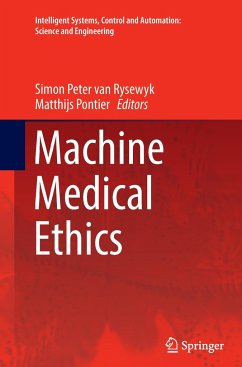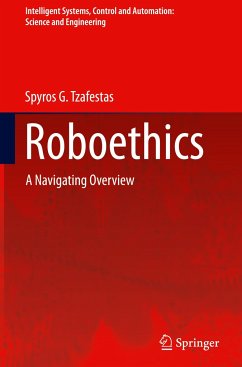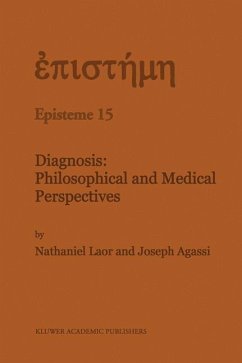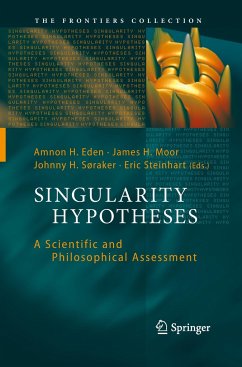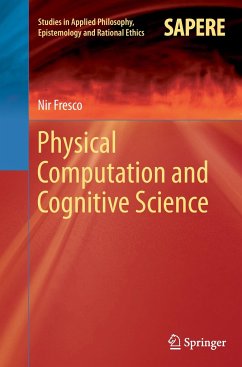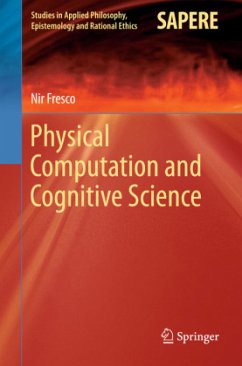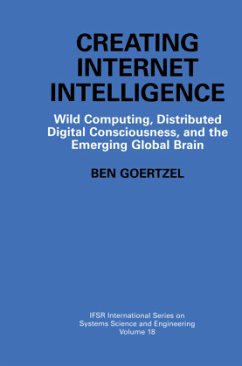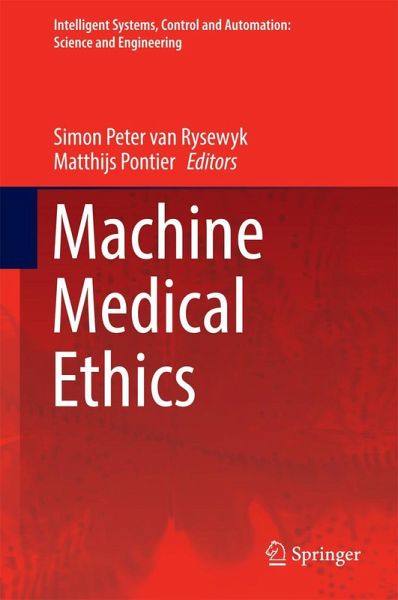
Machine Medical Ethics

PAYBACK Punkte
38 °P sammeln!
The essays in this book, written by researchers from both humanities and science, describe various theoretical and experimental approaches to adding medical ethics to a machine, what design features are necessary in order to achieve this, philosophical and practical questions concerning justice, rights, decision-making and responsibility in medical contexts, and accurately modeling essential physician-machine-patient relationships.In medical settings, machines are in close proximity with human beings: with patients who are in vulnerable states of health, who have disabilities of various kinds,...
The essays in this book, written by researchers from both humanities and science, describe various theoretical and experimental approaches to adding medical ethics to a machine, what design features are necessary in order to achieve this, philosophical and practical questions concerning justice, rights, decision-making and responsibility in medical contexts, and accurately modeling essential physician-machine-patient relationships.
In medical settings, machines are in close proximity with human beings: with patients who are in vulnerable states of health, who have disabilities of various kinds, with the very young or very old and with medical professionals. Machines in these contexts are undertaking important medical tasks that require emotional sensitivity, knowledge of medical codes, human dignity and privacy.
As machine technology advances, ethical concerns become more urgent: should medical machines be programmed to follow a code of medical ethics? What theory or theories should constrain medical machine conduct? What design features are required? Should machines share responsibility with humans for the ethical consequences of medical actions? How ought clinical relationships involving machines to be modeled? Is a capacity for empathy and emotion detection necessary? What about consciousness?
This collection is the first book that addresses these 21st-century concerns.
In medical settings, machines are in close proximity with human beings: with patients who are in vulnerable states of health, who have disabilities of various kinds, with the very young or very old and with medical professionals. Machines in these contexts are undertaking important medical tasks that require emotional sensitivity, knowledge of medical codes, human dignity and privacy.
As machine technology advances, ethical concerns become more urgent: should medical machines be programmed to follow a code of medical ethics? What theory or theories should constrain medical machine conduct? What design features are required? Should machines share responsibility with humans for the ethical consequences of medical actions? How ought clinical relationships involving machines to be modeled? Is a capacity for empathy and emotion detection necessary? What about consciousness?
This collection is the first book that addresses these 21st-century concerns.





